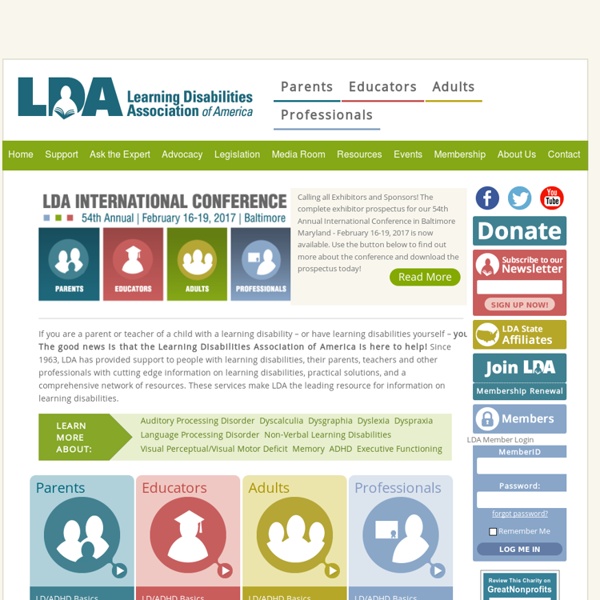Learning Disabilities Association of America
Dyslexia the Gift. Information and Help for Dyslexia
LD OnLine: The world's leading website on learning disabilities and ADHD
Office of Special Education Programs (OSEP) - Home Page
The Office of Special Education Programs (OSEP) is dedicated to improving results for infants, toddlers, children and youth with disabilities ages birth through 21 by providing leadership and financial support to assist states and local districts. The Individuals with Disabilities Education Act of 2004 (IDEA) authorizes formula grants to states and discretionary grants to institutions of higher education and other non-profit organizations to support research, demonstrations, technical assistance and dissemination, technology and personnel development and parent-training and information centers. To learn more about OSEP, click on the relevant links below.
The International Dyslexia Association Promoting literacy through research, education and advocacy
Related:
Related:



